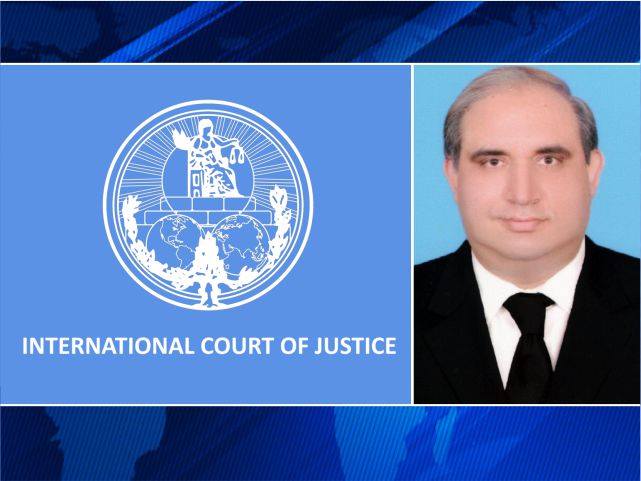ISLAMABAD – Member of Pakistan Bar Council and advocate Supreme Court, Raheel Kamran Sheikh on Thursday recommended that the appointment of Pakistan’s ad hoc judge to International Court of Justice (ICJ) should be decided through the process of mutual agreement by all relevant institutions of the state.
Putting forth his recommendations in a letter to all members of the council, the advocate said that regardless of who is nominated by Pakistan for the appointment as ad hoc judge of the ICJ, the process for such nomination “must inspire confidence of the nation and the same cannot be left entirely to the absolute discretion of the government.”
Pakistan on Thursday informed the ICJ of its intention to get an ad hoc judge appointed who would sit on the ICJ bench during its proceedings, including substantive hearings in the Kulbhushan Jadhav case.
Citing the provisions of Article 175A of the Constitution, Raheel emphasised that how can the process of nomination for the appointment as a judge of the ICJ be left to the absolute discretion of the government.
He said all political parties and all relevant institutions of the State must be on the same page.
“The decision must look like a sovereign act and not just a decision of any political government. All political parties and all relevant institutions of the State must not only be involved in the process of decision making but they must be made to fully own the decision for better or worse.”
Considering the controversies in the aftermath of ICJ’s provisional verdict, the advocate said if anyone is nominated by the government for appointment as ad hoc judge, political parties in opposition may attribute one or the other reason to criticize such nomination, however, if the nomination is made through a more representative process, such as with approval of the Parliament through a resolution passed in a joint sitting of both Houses, no political party can possibly object on any ground whatsoever.
“If on 18th April, 2015 Parliament in Joint Sitting of Houses can pass a resolution calling for neutrality in Yemen conflict, why should it have no role in the approval or otherwise of the nomination for the appointment of a Judge from Pakistan to sit in the ICJ, particularly in the absence of any other procedure envisaged in the Constitution,” the barrister maintained.
In view of the above, I request you all to convene a meeting of the Council and pass an appropriate resolution regarding the process of nomination by Pakistan for the appointment as a judge of the ICJ, he added.














